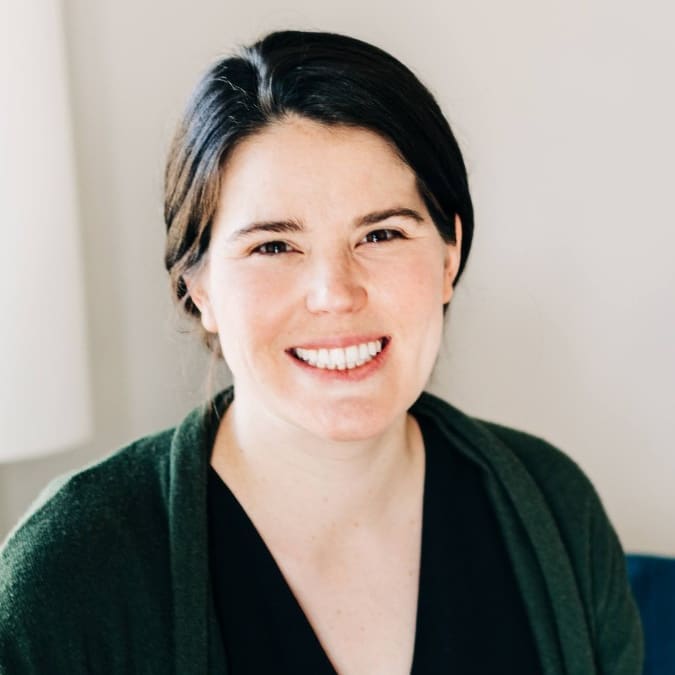In need of a small victory and a tactile point of focus, I dedicated a few evenings to mending. Inspired by the beautifully useful Japanese art of sashiko and compelled by a bike-chain-shredded hole in a favourite red jumper, I patched the elbow with geometric stitches. Mending acknowledges the wear and tear and embellishes it rather than aiming to obscure it seamlessly. Museum-level sashiko pieces emerge from decades of habitual wear, patient running stitches, and variegated shades of indigo fragments. The fabric of my own faith can feel frayed, with thin areas almost worn through, in need of reinforcement from careful stitches. The emergent beauty of sashiko comes not in spite of its frayed edges and patches, but because of them.
Crazy Quilt
by Jane Wilson Joyce
The Liberty Bell in Philadelphia
is cracked. California is splitting
off. There is no East or West, no rhyme,
no reason to it. We are scattered.
Dear Lord, lest we all be somewhere
else, patch this work. Quilt us
together, feather-stitching piece
by piece our tag-ends of living,
our individual scraps of love.
If fear and pain is the backdrop, then the thread is what holds it all together.
Love is what carries you, for it is always there, even in the dark, or most in the dark, but shining out at times like gold stitches in a piece of embroidery.
—Wendell Berry, from Hannah Coulter
Thinking of Bonhoeffer’s “church invisible” reminds me of a friend’s vocation as a therapist and gardener. She works in a school district ravaged by dysfunction and violence, intensified by generational poverty and methamphetamine usage. In response, she shows her students how to scratch out a Zen garden in the sand when their emotions riot, and creates secure green spaces to confront abuse and neglect.
The job takes a toll, so we meet either via a quick email or over a long Sunday lunch of migas to rail at systemic and personal injustices and to mourn the seeming inaction of Christ.
In one such email, we discussed an On Being podcast with Rami Nashashibi and Lucas Johnson, an imam and a Baptist pastor who helped reframe the problem of pain. Unmerited suffering is a fundamental tenet of radical non-violence, they maintained, but allowing space for that idea creates a deeply uncomfortable tension.
I have come to suspect that this tension forms the very fibre of our faith. Creating space to confront unwarranted adversity together draws us into both the presence and absence of Christ. Surely recognizing the work of his church requires proximity to pain and holding fast to the power of love.



